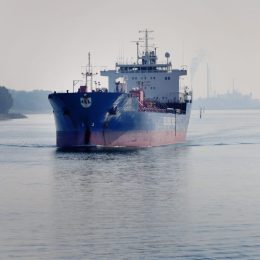Making inland shipping resilient during and after extreme events
Inland shipping is cost-effective, reliable, and eco-friendly. The European Commission aims to promote waterways as vital parts of the transport system. Deltares supports this, but climate change threatens waterway availability. We offer infrastructure managers and the maritime industry sustainable solutions to boost inland navigation resilience and ensure business continuity during and after extreme events.
Impact studies of variable water levels for inland shipping
Inland shipping is increasingly being confronted with variable water levels and, in their wake, extremely high or low water. High water levels can block shipping traffic. For example, because there is not enough bridge clearance or because of restrictions on shipping to safeguard the integrity of river dikes. When water levels are low, the capacity of fairways is reduced and there can be long waiting times at locks and terminals.
Our researchers have decades of experience in the design, construction and improvement of waterways and inland ports. We conduct studies of the impact of river measures on inland navigation and we improve water depth forecasting. In that way, we identify bottlenecks in transport corridors and suggest ways to remedy them.
We work with the inland navigation sector to develop tools that help to optimise plans and sailing schedules. In that way, we help infrastructure managers and the maritime sector on the way to climate-resilient inland water transport.
A combination of logistics, maritime and infrastructure
To maintain or establish the robustness, reliability, efficiency and resiliency of inland navigation, Deltares always adopts an interdisciplinary approach consisting of three areas of expertise:
- logistics: seaport planning, intermodality, last-mile transportation and inland navigation terminals
- maritime: ship design and fleet capacity
- infrastructure: system of rivers, canals, locks, dams, port and terminal design
Management and maintenance of waterways as a component of integrated river management
We advise infrastructure managers and government authorities about the design, management and maintenance of waterways, including the hydraulic structures (also known as “water-based infrastructure”). During that process, we do not look exclusively at the river as a transport corridor. We consider other functions such as:
- the safe discharge of water, sediment and ice
- water supplies for agriculture, drinking water and industry
- room and water supplies for nature
We therefore work with logistical and maritime knowledge institutes, government organisations, port authorities, universities, engineering firms and contractors. We are collaborating on the sustainable design of river systems, including robust and reliable transport by water.



